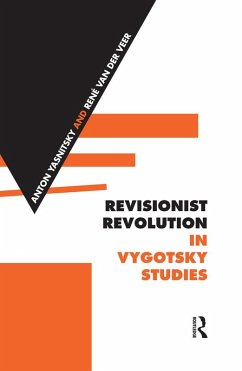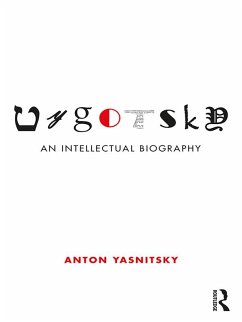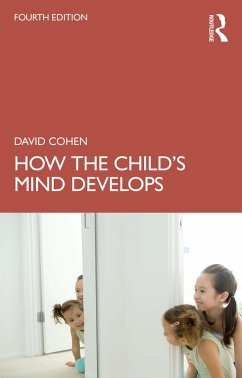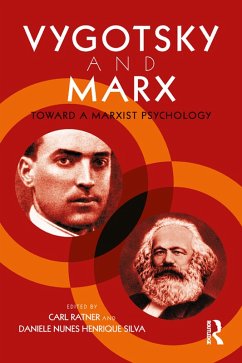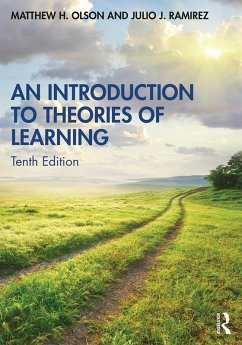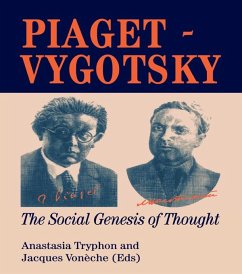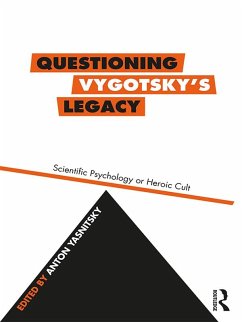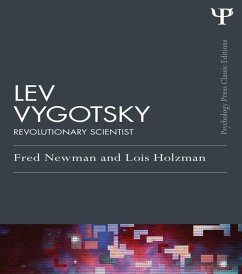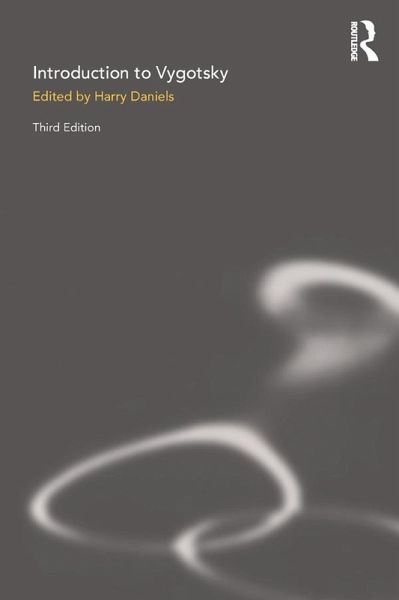
Introduction to Vygotsky (eBook, ePUB)
Versandkostenfrei!
Sofort per Download lieferbar
43,95 €
inkl. MwSt.
Weitere Ausgaben:

PAYBACK Punkte
22 °P sammeln!
This thoroughly updated third edition provides students with an accessible overview of Vygotsky's work, combining reprints of key journal and text articles with rich editorial commentary. Lev Vygotsky provided the twentieth century with an enticing mix of intellectual traditions within an attempt to provide an account of the social formation of the mind. His legacy is an exciting, but at times challenging fusion of ideas.Retaining a multi-disciplinary theme, Introduction to Vygotsky, 3rd edition begins with a review of current interpretations of Vygotksy's original work. Harry Daniels goes on ...
This thoroughly updated third edition provides students with an accessible overview of Vygotsky's work, combining reprints of key journal and text articles with rich editorial commentary. Lev Vygotsky provided the twentieth century with an enticing mix of intellectual traditions within an attempt to provide an account of the social formation of the mind. His legacy is an exciting, but at times challenging fusion of ideas.
Retaining a multi-disciplinary theme, Introduction to Vygotsky, 3rd edition begins with a review of current interpretations of Vygotksy's original work. Harry Daniels goes on to consider the development of Vygotsky's work against a backdrop of political turmoil in the developing USSR. Major elements explored within the volume include the use of the 'culture' concept in social development theory, the development of means of describing social life, the concept of mediation, and implications for teaching, learning and assessment
This book will be essential reading for Vygotskian students in developmental psychology, education and social sciences, as well as to students on specialised courses on cultural, cross-cultural and socio-cultural psychology, philosophical psychology, philosophy of science, history of psychology and Soviet/Russian history.
Retaining a multi-disciplinary theme, Introduction to Vygotsky, 3rd edition begins with a review of current interpretations of Vygotksy's original work. Harry Daniels goes on to consider the development of Vygotsky's work against a backdrop of political turmoil in the developing USSR. Major elements explored within the volume include the use of the 'culture' concept in social development theory, the development of means of describing social life, the concept of mediation, and implications for teaching, learning and assessment
This book will be essential reading for Vygotskian students in developmental psychology, education and social sciences, as well as to students on specialised courses on cultural, cross-cultural and socio-cultural psychology, philosophical psychology, philosophy of science, history of psychology and Soviet/Russian history.
Dieser Download kann aus rechtlichen Gründen nur mit Rechnungsadresse in A, B, BG, CY, CZ, D, DK, EW, E, FIN, F, GR, HR, H, IRL, I, LT, L, LR, M, NL, PL, P, R, S, SLO, SK ausgeliefert werden.




